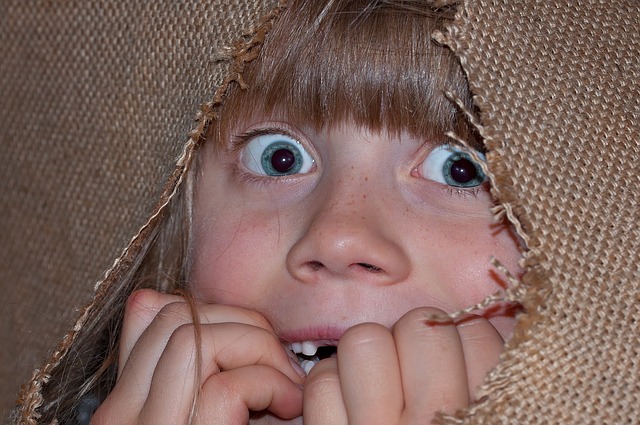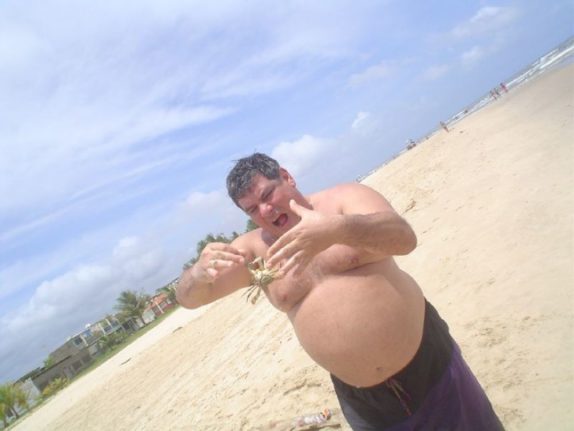¡Bah!
Used to express indifference or disdain.
Example: ¡Bah! Me da igual. Meh! I don’t care.

Photo: Alejandro Forero Cuervo/Flickr
¡Puf!
Used to express concern or worry.
Example: ¡Puf! No encuentro mi móvil. Damn! I can’t find my phone.
 Photo: Sammy-Williams/Pixabay
Photo: Sammy-Williams/Pixabay
¡Uy!
Similar to ‘puf’ but used when something bad has happened or is about to happen. The more ‘uys’, the worse the problem is.
Example: ¡Uy, uy, uy! Esa casa está en llamas. Oh, Oh! That house is on fire.
 Photo: Pezibear/Pixabay
Photo: Pezibear/Pixabay
¿Eh?
A more unrefined way of expressing that you haven’t heard what someone has said or you haven’t understood something.
Example: ¿Eh? ¿Qué dices? What? What did you say?
 Photo: Alberto Pizzoli/AFP
Photo: Alberto Pizzoli/AFP
¡Ay!
Used to express physical pain or sorrow.
Example: ¡Ay! ¡Me duele! Ouch! It hurts!

Photo: Sergio Henao/Flickr
¡Eh!
Used to get somebody’s attention in an unfriendly way.
Example: ¡Eh, tú! Dame un cigarro. Oi, you! Give me a cigarette!
 Photo: Desiree Martin/AFP
Photo: Desiree Martin/AFP
¡Ey!
An informal greeting, friendlier than ‘eh’, probably derived from ‘hey’ in English.
Example: Ey! ¿Cómo estás? Hey, how are you?
 Photo: Louisa GOULIAMAKI / AFP
Photo: Louisa GOULIAMAKI / AFP
¡Puaj!
A way of expressing disgust for something.
Example: Puaj! ¡Qué asco!. Yuck! That’s disgusting!
 Photo: Carl de Souza/AFP
Photo: Carl de Souza/AFP
¡Guay!
The Spanish way of saying you think something is cool or that you agree with it.
Example: ¿Así que vamos a la playa? ¡Guay! So we’re going to the beach? Cool!

Photo: Max Ravier/Pexels
¡Pum!
Onomatopoeia used to describe a hard hit.
Example: Cogió el balón y pum! Gol! He got the ball and bang! Goal!
 Photo: JAVIER SORIANO / AFP
Photo: JAVIER SORIANO / AFP
¡Zas!
Similar to ‘pum’ but used when the hit is unexpected, an act of karma or vengeance. ‘Zasca’ is also used.
Example: Y de repente – ¡zas! – en toda la boca. And all of sudden – pow! – right on the kisser.

¡Hala!
It’s used in a slightly condescending manner when somebody puts their foot in it.
Example: ¡Hala! ¿Pero qué demonios haces? Here we go! What the hell are you doing?
 Photo: Robin Higgins/Pixabay
Photo: Robin Higgins/Pixabay
¡Epa!
Used when somebody slips or bumps into something, or almost does. In the Basque Country it’s often used to greet someone as well.
Example: ¡Epa! ¡Casi me caigo! Oops! I nearly fell over.
 Photo: CLIVE BRUNSKILL/AFP
Photo: CLIVE BRUNSKILL/AFP
¡Olé!
Perhaps the most quintessential Spanish word there is, it’s commonly associated with praising bullfighters every time they dodge the animal, but it’s used in everyday speech to commend someone or something.
Example: ¡Olé, que arte! Bravo, beautifully done!
 Photo: Oscar del Pozo/AFP
Photo: Oscar del Pozo/AFP
Disclaimer: This language list isn’t meant to hurt the feelings of cavemen or struggling Spanish language learners, nor is it meant to imply that Spanish is a simple language (far from it) or that Spaniards speak in grunts. It’s simply a light-hearted list of commonly used interjections that may help you sound more like a native speaker in Spain 🙂



 Please whitelist us to continue reading.
Please whitelist us to continue reading.
Member comments